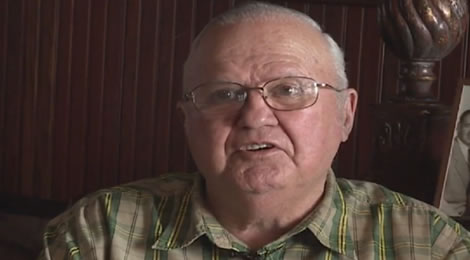74-y-o pastor who attempted suicide after being accused of abusing underage girls is acquitted

A 74-year-old Indiana pastor, who attempted suicide nearly two years ago after being accused of luring several underage girls to his office with candy and sexually molesting them, has been acquitted of all charges.
After hearing two weeks of testimony against Pastor Garry Evans, who led Rushville Baptist Temple in Rushville, Indiana, for some 30 years before he was arrested in 2017, a jury acquitted him Friday of 14 counts of child molestation, sexual battery and child solicitation, News 8 reported.
“The verdict was in. God’s will been done,” Evans told the news outlet in reaction to his “not guilty” verdict from the jury, which deliberated for less than an hour.
“I’ve been trapped for two years, not able to get out of my house,” he said. “I was gone at prison for seven months … innocent, knowing that I did not do it. It hurt real bad and it’s still hurting.”
Police began investigating Evans on Sept. 4, 2017, after a 3-year-old girl alleged that Evans took her to his office for candy but pulled down his pants instead and made her touch his penis. He then allegedly warned her not to tell anyone.
Once word got out, other mothers began questioning their daughters about their encounters with the pastor and four more girls under the age of 10 came forward with molestation charges.
One girl said in court documents that Evans touched her “nearly every time she went to church.” She said he just laughed when she told him “no.”
Another girl who said she was regularly touched by the pastor said she told him to stop and left his office because his touching made her uncomfortable.
Another girl said Evans regularly touched her; one time she told him to stop and left the room because it made her uncomfortable.
Jud McMillin, Evans’ lead defense attorney, told News 8 that his client was a victim of confirmation bias, which is a tendency to search for or interpret information in a way that confirms one’s preconceptions, leading to statistical errors.
He said despite having “full confidence” in his client’s innocence, he was “petrified” of taking the case to trial.
“We can preach all day about the presumption of innocence [but] we’re starting a 100-yard race 50 yards behind when the jurors are brought in and they’re told these types of allegations,” he said. “So it was the scariest trial I’ve ever done.”
Evidence presented to the jury showed that Evans’ first underage accuser had described a different perpetrator and had made the initial accusation of abuse while her mother was in the shower and could not clearly hear her. She also did not accurately describe Evans, according to the defense, and failed to pick him from a photo line-up repeatedly.
“Despite putting the pastor as [suspect] number five right in front of her, she never picks him out,” McMillin said. “They ask her 19 direct times.”
The credibility of Evans’ next four accusers who were two pairs of sisters, was also questioned because their “almost identical stories” suggested they may have been coached, according to McMillin.
“What we were really able to show the jury is that before the investigating officer really knew what was going on, [authorities] made conclusions about what they thought was going on,” McMillin explained. “They had this narrative of ‘boogeyman in the closet’ that just wasn’t true.”
Evans said the allegations against him were difficult to process and resulted in him and his wife of 53 years being separated for the first time when he was incarcerated.
He was also so devastated by the allegations against him, Evans tried to end his life. He was rescued by police at his home by police officers who resuscitated him and took him to a local hospital.
Evans no longer leads a church and he and his lawyer have not ruled out pursuing civil action for his pain and suffering.
“I know a lot of folks who’d sit back and say, ‘Well, I would certainly sue!’ But a lot of people just want it over,” McMillin said. “They don’t want to continue to stir the pot.”





